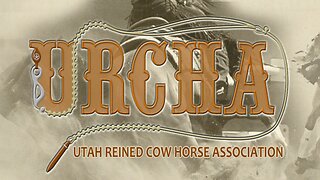Premium Only Content

Constipation Is Making Me Late
Henry VII: “It’s a limited edition 501 (c) (10) model Shriner Imperial Divan.” - 501 (c) (10) is the Internal Revenue Service (IRS) tax exemption status that applies to "domestic fraternal societies, orders, or associations that operate under the lodge system…and devote net earnings exclusively to religious, charitable, scientific, literary, educational, and fraternal purposes,” such as Shriners International and the Freemasons.
Henry VII: “Yeah, a board game...still surfing on the freaking couch.” - A member of CoBaD used to be an officer in a Masonic Lodge, and used to be active in the Shriners as well, just like his father and grandfather. A lot of the jokes CoBaD makes about the Shriner Imperial Divan were based on his experiences as an officer in a Masonic lodge, as both are similar in structure (the link here is that one must become a Mason before one is eligible to become a Shriner). While this troupe member approved of their respective philanthropic causes, he left both organizations because of (1) how their leadership is structured, (2) the centralization of power, and (3) the general conduct in their meetings, particularly the conduct of past masters.
1. Leadership structure inherently favors maintaining the status quo: The Shriner Imperial Divan, like a Masonic lodge, traditionally has a progressive office structure. An officer starts at the lowest most position and every year moves up a spot. The two exceptions are the Recorder (also known as the Secretary) and the Treasurer; they are elected to their respective offices and have no term limits. The problem with this model is that there are 10 progressive office positions on the Divan (again, this number does not include the Recorder and Treasurer). So by the time an officer has advanced from the lowest office (The Outer Guard) to the Potentate, he has become so thoroughly indoctrinated, entrenched and even mired in “the way things have always been done” that any new and fresh ideas he may have had when he started have been long since forgotten or pushed by the wayside by other board members. It is CoBaD’s opinion that the leadership structure is essentially a form of “Buggins’ turn,” a disparaging British term for an appointment to a position based on rotation or seniority rather than on merit. Jim Hacker, in the “Yes, Minister” episode “Equal Opportunities” said it best when he faced a similar challenge from his Secretary Sir Humphrey Appleby when wanting to promote a young woman, Sarah Harrison, to Deputy Secretary when he said: “Instead of being run by a lot of young, able, energetic men, this country’s being run by tired, cynical fifty-five year olds who just want a quiet life.”
2. Secretary and Treasurer hold too much power: With so much change in the divan from officers changing positions and responsibilities every year, there has to be some stabilizing force on the Divan otherwise it could not function. The recorder and the treasurer fulfill this role. So it appears to us here at CoBaD that the de facto leaders are the Recorder and Treasurer, as between the two they hold all the knowledge, all the history and all the money. We think such an structure is subject to abuse. Again citing one of our favorite British TV series, “Yes, Minister,” and “Yes, Prime Minster,” Sir Humphrey was easily able to manipulate Jim Hacker knowing how little Mr. Hacker knew of the inner workings of the government, and is able to bend Mr. Hacker to his will. A portion of this point was evident in the last lodge meeting the troupe member attended. In it, the secretary interceded at the meeting, speaking about 30-40 percent of the time, interceding and answering questions from the lodge almost as if he were the Worshipful Master.
3. Meddling from former leaders: The aforementioned last lodge meeting was also marked by past masters in the lodge frequently interrupting the meeting (sometimes without raising their hands, standing up and respectfully addressing the lodge first, a clear breach of lodge etiquette) with unsolicited comments to the Worshipful Master like “No, don’t say this, say that in the opening of the lodge,” “Pound the gavel,” “No, you can’t call for a vote, there hasn’t been a motion” or piping in with a “When I was Worshipful Master of this lodge…” This troupe member didn’t care for such counterproductive and rude behavior. Officers will never get better unless they learn from their own mistakes, and in fact will become more apprehensive knowing petty and pedantic past masters will barge in with their unsolicited suggestions or jump all over them if they make even the tiniest of missteps. It is little wonder that at this meeting, between the Secretary's and Past Masters' interruptions, the visibly confused and befuddled real Worshipful Master (a former Worshipful Master at another lodge, we might add, so he clearly he had experience in the role) was reduced to little more than a compliant, gavel-pounding puppet.
As mentioned previously, the jokes in this skit were based on experiences as an officer in the Masonic Lodge. While he never served on the Imperial Divan, he thinks it doesn’t seem too far-fetched to think that the Divan encounters similar problems as well.
Henry VII: “…in a scene that’s so long-winded and ostentatious you’d swear it was a prose edition of a scene straight out of Goethe’s ‘Faust Part 2: Revenge of the Rhyme of the Ancient Narrator…’” - Intended to poke fun at Johann Wolfgang von Goethe's (1749 –1832) work "Faust" (1808). In it, the characters spoke almost entirely in stilted rhyme. As if that book wasn’t bad enough, he published a sequel “Faust: Part 2” (1832) that’s even worse from a plot perspective. With the exception of Helen and Faust, the characters again speak almost entirely in rhyme, and Mephistopheles and Faust don’t appear at all in about a quarter of the book. Apparently Faust and Mephistopheles got tired of rhyming and ditched us poor readers, leaving us to fend for ourselves and forcing us to put up with the likes of a very tiresome Greek mythological spectacle and a long-winded emperor who did a deal with the devil so that he could keep his seat and win a war (spoken in rhyme of course). Kudos to Faust, though, for continuing to rhyme for another four pages after an old hag by the name of Care blinded him with her halitosis before finally succumbing to asphyxiation. Death by breath I guess (dammit, now Goethe has us rhyming!).
Henry VII: “If they do turn up early, I’ll tell them that the Oriental Band has the room booked for their 15 minute weekly practice and will then adjourn to the matching Imperial Drinks Cabinet over there where they’ll booze it up for the next hour.” – Based on an actual experience. Shriners have clubs which members are encouraged to join, such as ones dedicated to pastimes such as bowling, singing, clowning, and driving undersized motor vehicles in parades. The aforementioned member of CoBaD wanted to get more involved, and a fellow Shriner suggested that he try to play the musette in the Oriental Band. This member had a bagpipe background, and the musette kind of looked like a bagpipe chanter, so he thought he could at least give it a try. He emailed the band leader and was told that the band had a competition in a month, and the competition consisted of playing a single tune that was about a minute long. Well, it was an aggressive schedule, but he figured at least he could try, and if it he couldn’t play the tune correctly he could always bow out of the competition.
The troupe member was about five minutes late to practice, but it didn’t appear to him that the band had started yet as the drummers were still warming up in another room. He was introduced to the musette, shown the sheet music, and was invited to watch practice. Practice lasted about 15 (fifteen) minutes, then everyone adjourned to a bar in an adjoining room for drinks. Coming from a bagpipe band background where tuning alone lasts 20 minutes and practices last at least two hours, this proved to be rather disappointing. Needless to say he never went back.
Henry VII: “Oh, I see. I think you misunderstood me, Doc. When I said ‘stool.’ I wasn’t referring to ‘sh**.’ I was in fact referring to ‘Groom of the Stool.’”
Royal Doctor: “Oh sorry. What’s a ‘Groom of the Stool?’”
Henry VII: “He’s my personal assistant. You know, my dresser, Chester Drawers…”
Royal Doctor: “(giggle) Chester Drawers…sorry.”
The Groom of the Stool was a male servant in the Royal household who tended to the king with regards to his hygiene and toilet needs. He wasn’t technically a dresser; that role belonged to the Gentleman of the Bedchamber. Still we couldn’t resist plugging in this reference to “An Animated Discussion” sketch. Later in the sketch, Mr. Drawers makes a cameo appearance dressed as one of the most famous Grooms of the Stool, Henry Rich, First Earl of Holland (1590-1649).
Despite the job description, the role of Groom of the Stool was quite a powerful one. Usually held by a member of the nobility, the Groom of the Stool, actually created in 1485 by Henry VII, was a powerful official involved in managing the king’s private finances and was responsible for setting national fiscal policy under the chamber system (as well as the chamber pot system, but we digress). In addition, the Groom of the Stool was privy (no pun intended) to royal secrets and had unfettered access to the king (in more ways than one). By the time the post was officially dissolved in 1901, The role of Groom of the Stool had evolved from caretaking royal asses into caretaking royal assets.
Henry VII: "Now if you'll excuse me, I need to see a man about a horse."
Royal Doctor: "(sigh) If only Dick the Third had listened to me."
- Reference to Richard III's famous line in William Shakespeare's play: "A horse, a horse! My kingdom for a horse!" (Act 5, Scene 4). Richard III had forgotten the cardinal rule of war: Always go to the bathroom before you go to battle.
Stan Cupp: “And here’s your leaderboard after the first 480 years of secondhand Viking rule…” - According to ancestry.com, Vikings that settled in northern France in the eighth century became known as the Normans, and, by the early 11th century, ruled a region in France sanctioned by the French crown. These Normans, led by William the Conqueror, then sailed across the English Channel and claimed the throne of England in 1066, defeating Harold Godwinson at the Battle of Hastings. So, England, this is the sort of golf tournament you get when you let a bunch of hand-me-down Vikings rule your country.
Geoffrey Saucer: “Henry II jumped out to an early lead in the round by taking out a low-born clerk,” – Refers to the murder of Thomas Becket, Archbishop of Canterbury and Primate of All England (1119-1170).
Geoffrey: “…and was able to stave off that late charge by Pope Alexander III thanks to the Compromise of Avranches with the Catholic Church.” - On May 21, 1172, at the cathedral in Avranches, Normandy, papal legates publicly absolved Henry II from his role in the murder of Archbishop Thomas Becket on December 29, 1170, on the condition that Henry II provide 200 knights to serve in the Holy Land for one year and fight either in the Holy Land or in Spain against the Moors for an additional three years. Henry II was also to restore all properties he seized from the church of Canterbury, and allow appeals from the English church to Rome. The Compromise helped to restore the relationship between the crown and the Catholic Church (Hume, 1762). So yes, Henry II did successfully stave off a “late charge” (16 months and 23 days late to be precise).
Geoffrey: “Unfortunately, Stan, Alexander III wasn’t able to maintain that momentum, and fell out of contention after the Third Lateran Council.” – The Third Lateran Council was hosted in March, 1179 by Alexander III. Among the notable Canons passed were Canon 1 (only Cardinals were permitted to elect a Pope) and Canon 7 (forbidding churches to engage in simony, specifically, charging money to conduct burials, bless a marriage or conduct sacraments). Later that year, Alexander III was kicked out of Rome by the Roman Republic. Alexander III died in Civita Castellana (a town 40 miles north of Rome) in 1181.
Geoffrey: “And I thought Henry V had a very good round. There was just something about crossing the burn and winning the Agincourt Invitational last October that has really invigorated his game.” - “Crossing the burn” is a reference to Swilcan Burn at The Old Course at St. Andrews in St. Andrews, Scotland (“burn” is the Scottish term for a stream). The Swilcan Bridge crosses the burn linking the the first and 18th fairways of the course. Champion golfers usually pay some form of respect to Swilcan Bridge, which of course is crossed by those who have just completed the tournament and are heading back to the clubhouse. The course was founded in 1552, making it the oldest golf course in the world. The Swilcan Bridge itself is believed to be at least 700 years old. Likewise Henry V crossed a “burn” of his own (i.e., The English Channel) in October, 1415 before defeating the French in Agincourt, France.
Geoffrey: “Dick was hanging in there most of the day until going one stroke down at the infamous Bosworth Bunker on the 14th.” - Refers to The Battle of Bosworth Field on August 22, 1485, where Richard III was struck down. The bunker is a reference to the notorious Hell Bunker located on the 14th hole of the aforementioned Old Course.
Stan: “Dick got a hold of the screenplay of Richard III, and proceeded to beat Willy senseless with it on the 9th fairway for its gross historical inaccuracies.” - Reference to the historical inaccuracies of Shakespeare’s play, which appeared to be Shakespeare’s way of vilifying the House of York and kissing the ass of the House of Tudor. CoBaD thinks that Shakespeare truly missed his calling in life; we think Willy could have made an excellent Groom of the Stool.
References:
Ancestry.com. England and Northwestern Europe: Vikings and the Danelaw.
Fraternal Organizations: What Constitutes a Lodge System? Internal Revenue Service. https://www.irs.gov/charities-non-profits/fraternal-organizations-what-constitutes-a-lodge-system
Goethe, J.W. (1982) Faust Part Two (E.V. Rieu, ed). Penguin Books, Ltd.
Hume, David (1762). History of England. Vol.1, Ch.9 (Henry II). pp.334-335.
Jay, A. and Lynn, J. (1982, November 11) Yes, Minister. (Series 3, Episode 1) [TV Series Episode]. Equal Opportunities. BBC2.
Oxford Reference. Compromise of Avranches. https://www.oxfordreference.com/display/10.1093/oi/authority.20110810104414791;jsessionid=D8952A7FE70D6A464EEECD1945F61641
Papal Encyclicals Online. Third Lateran Council - 1179 A.D. https://www.papalencyclicals.net/councils/ecum11.htm
Wikipedia. Battle of Bosworth Field. https://en.wikipedia.org/wiki/Battle_of_Bosworth_Field
Wikipedia. Compromise of Avranches. https://en.wikipedia.org/wiki/Compromise_of_Avranches
Wikipedia. Groom of the Stool. https://en.wikipedia.org/wiki/Groom_of_the_Stool
Wikipedia. Henry Rich, First Earl of Holland. https://en.wikipedia.org/wiki/Henry_Rich,_1st_Earl_of_Holland
Wikipedia. Lambert Simmel. https://en.wikipedia.org/wiki/Lambert_Simnel
Wikipedia. Pope Alexander III. https://en.wikipedia.org/wiki/Pope_Alexander_III
Wikipedia. Richard III, Historical inaccuracies. https://en.wikipedia.org/wiki/Richard_III_(play)#Historical_inaccuracy
Wikipedia. St. Andrews Links. https://en.wikipedia.org/wiki/St_Andrews_Links
Wikipedia. Swilcan Bridge. https://en.wikipedia.org/wiki/Swilcan_Bridge
-
 LIVE
LIVE
JuicyJohns
3 hours ago $0.26 earned🟢#1 REBIRTH PLAYER 10.2+ KD🟢
56 watching -
 LIVE
LIVE
Major League Fishing
6 days agoLIVE! - Fishing Clash Team Series: Challenge Cup - Day 5
134 watching -
 LIVE
LIVE
LFA TV
4 hours agoLFA TV ALL DAY STREAM - THURSDAY 8/28/25
5,014 watching -
 LIVE
LIVE
Total Horse Channel
14 hours ago2025 URCHA Futurity | Derby & Horse Show | Thursday
104 watching -
 LIVE
LIVE
The Big Mig™
1 hour agoThe War Powers Resolution w/ David Clements
5,132 watching -
 LIVE
LIVE
Badlands Media
7 hours agoBadlands Daily: August 28, 2025
4,148 watching -
 1:43:15
1:43:15
Dear America
3 hours agoTrans Violence Against Christianity MUST BE STOPPED!!
87.1K81 -
 LIVE
LIVE
Wendy Bell Radio
6 hours agoGuns Don't Kill People
6,758 watching -
 2:05:38
2:05:38
Matt Kohrs
10 hours agoMarket Open: New Highs or Bust?! || Live Trading Futures & Options
11.8K2 -
 46:34
46:34
Randi Hipper
1 hour agoWALL STREET'S CRYPTO BET REVEALED! HINT: IT'S NOT BITCOIN!
2.18K2